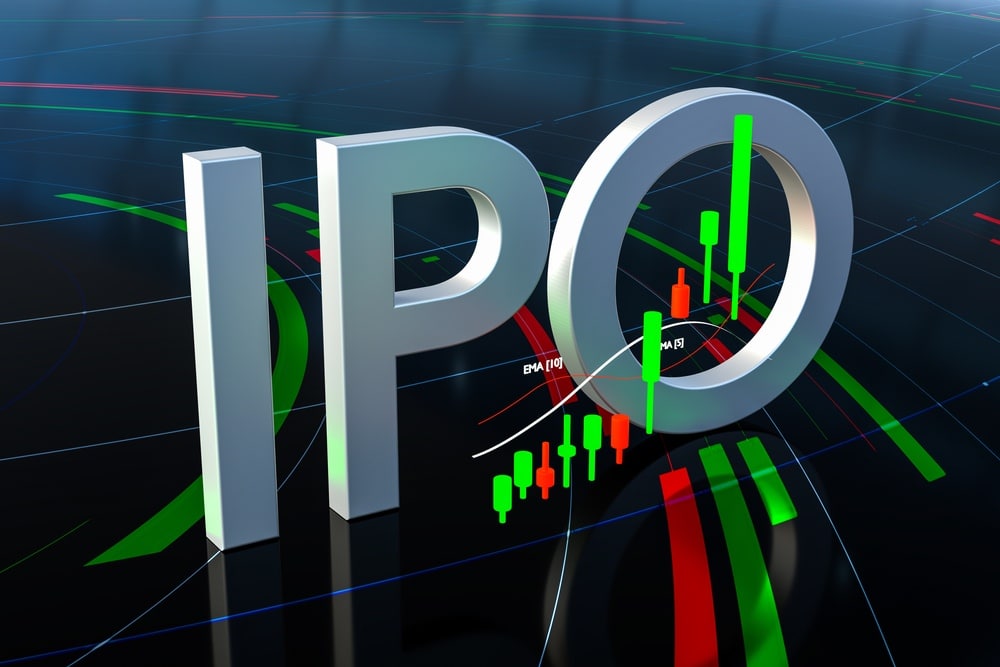IPO stands for Initial Public Offering. It is a process through which a privately held company offers shares of its stock to the public for the first time.
During an IPO, the company typically hires an investment bank to underwrite the offering and help with the process of going public. The investment bank will assist the company with tasks such as determining the initial stock price, filing regulatory documents with the Securities and Exchange Commission (SEC), and marketing the offering to potential investors.
Once the IPO is complete, the company’s shares are publicly traded on a stock exchange, allowing individuals and institutional investors to buy and sell the company’s stock. The proceeds from the IPO can be used to fund the company’s growth, pay off debt, or provide liquidity to existing shareholders. Here are 10 of the most successful companies that had their IPO in 2009, along with a brief overview of their history and performance.

1. SolarWinds (SWI)
SolarWinds is a software company that provides IT management solutions to a wide range of customers, including small businesses and Fortune 500 companies. The company went public in May 2009, raising $151 million in its IPO. Since then, SolarWinds has grown steadily, with annual revenues exceeding $1 billion in 2019.
In late 2020, SolarWinds made headlines when it was revealed that its software had been hacked as part of a large-scale cyberattack campaign. The attack, which was believed to have been carried out by state-sponsored hackers, affected numerous government agencies, technology companies, and other organizations.
The SolarWinds hack was a significant event in the cybersecurity world, and it has prompted many companies to re-evaluate their security measures and practices. Despite the cyberattack, SolarWinds remains a publicly traded company, and its stock continues to be traded on the New York Stock Exchange under the ticker symbol SWI.
2. Rosetta Stone (RST)
Rosetta Stone is a language-learning software company that went public in April 2009, raising $112 million in its IPO. The company had a successful debut, with its stock price surging more than 40% on its first day of trading. However, Rosetta Stone has faced some challenges in recent years, including increased competition from language-learning apps and declining sales.
The company was founded in 1992 and is headquartered in Arlington, Virginia. The company offers courses in over 30 languages and has a range of products for individuals, schools, and businesses.
In addition to its language-learning software, Rosetta Stone also offers services such as live online tutoring, mobile apps, and speech-recognition technology. The company’s products and services are used by millions of people around the world.
3. Bridgepoint Education (BPI)
Bridgepoint Education is an online education company that went public in April 2009, raising $138 million in its IPO. The company operates several online universities, including Ashford University and University of the Rockies. Bridgepoint Education has faced some scrutiny from regulators in recent years, but the company has continued to grow and expand its offerings.
Bridgepoint Education offers degree programs through its two institutions, Ashford University and the University of the Rockies. These programs are delivered entirely online and are designed to provide students with flexible, convenient options for pursuing higher education.
The company has faced scrutiny and criticism for its business practices, including its recruiting tactics and student loan practices. In 2018, Bridgepoint Education announced that it was spinning off Ashford University as an independent, non-profit institution.
However, as of September 2021, Bridgepoint Education announced that it had merged with Fullstack Academy, a tech bootcamp company, and changed its name to Zovio. Therefore, the BPI ticker symbol is no longer in use.
4. RealPage (RP)
RealPage is a software company that provides property management solutions to the real estate industry. The company went public in June 2009, raising $124 million in its IPO. Since then, RealPage has grown rapidly, with annual revenues exceeding $1 billion in 2019.
RealPage offers a range of products and services that help real estate owners, managers, and investors to improve their operational efficiency, maximize their revenue, and enhance their customer experience. The company’s products include property management software, online payment processing, resident screening, and market intelligence tools.
RealPage serves a variety of customers in the real estate industry, including multifamily housing, commercial property management, single-family rentals, vacation rentals, and student housing. The company’s software and services are used by thousands of customers across North America, Europe, and Asia.
In December 2020, the company announced that it had entered into a definitive agreement to be acquired by Thoma Bravo, a private equity firm, in an all-cash transaction valued at approximately $10.2 billion. The acquisition was completed in April 2021, and RealPage is now a privately held company.

5. Ancestry.com (ACOM)
Ancestry.com is a genealogy website that provides access to historical records and other resources for people interested in tracing their family history. The company went public in November 2009, raising $100 million in its IPO. Ancestry.com has continued to grow and expand its offerings, and the company was acquired by private equity firm Blackstone Group in 2020.
Ancestry.com offers a variety of products and services, including access to a vast collection of historical records and documents, DNA testing kits for genealogy research, and online tools for building family trees and connecting with other users. The company’s database contains billions of records, including census data, military records, and immigration records.
Ancestry.com serves millions of customers around the world and has become a popular resource for people interested in exploring their family history. The company also partners with other organizations, such as museums and archives, to help preserve and share historical records and documents.
6. OpenTable (OPEN)
OpenTable is a restaurant reservation platform that went public in May 2009, raising $60 million in its IPO. The company’s technology allows users to make reservations at thousands of restaurants across the United States and other countries. OpenTable has faced increased competition from other reservation platforms in recent years, but the company has continued to grow and expand its services.
OpenTable serves millions of diners and works with tens of thousands of restaurants in more than 20 countries. The company has become a popular resource for diners who want to discover new restaurants and make reservations online.
OpenTable became a publicly traded company in 2009, and its stock was traded on the NASDAQ stock exchange under the ticker symbol OPEN. In 2014, the company was acquired by Priceline Group (now Booking Holdings) in a transaction valued at approximately $2.6 billion. OpenTable is now a subsidiary of Booking Holdings and continues to operate as a leading provider of online restaurant reservation services.
7. Emdeon (EM)
Emdeon is a healthcare technology company that went public in August 2009, raising $367 million in its IPO. The company provides a range of solutions to the healthcare industry, including electronic health records, claims processing, and revenue cycle management. Emdeon was acquired by private equity firm Blackstone Group in 2011.
Following the acquisition, Emdeon changed its name to Change Healthcare and continued to operate as a leading provider of healthcare technology solutions. In 2020, Change Healthcare was acquired by Optum, a subsidiary of UnitedHealth Group, in a transaction valued at approximately $13 billion. The company now operates as part of OptumInsight, UnitedHealth Group’s health services and technology business.
8. Changyou.com (CYOU)
Changyou.com is a Chinese online gaming company that went public in April 2009, raising $120 million in its IPO. The company’s popular games include Tian Long Ba Bu and Blade Online.
Changyou.com develops and operates a variety of online games, including massively multiplayer online role-playing games (MMORPGs), casual games, and web games. The company’s flagship game is Tian Long Ba Bu, a popular MMORPG that has been a top-grossing game in China.
Changyou.com has a large and growing user base in China and has been recognized for its innovative game design and high-quality user experience. The company has also expanded its reach beyond China and has launched games in other markets, including Southeast Asia, North America, and Europe.
In 2020, Sohu.com announced that it would take Changyou.com private in a transaction valued at approximately $579 million. The deal was completed in 2021, and Changyou.com is now a wholly-owned subsidiary of Sohu.com.
9. A123 Systems (AONE)
A123 Systems is a lithium-ion battery technology company that went public in September 2009, raising $437 million in its IPO. The company was founded in 2001 and was headquartered in Livonia, Michigan.
A123 Systems’ products included batteries for electric vehicles, hybrid electric vehicles, and other high-power applications, as well as energy storage systems for grid-scale and commercial applications. The company’s innovative technology and high-performance products helped to accelerate the adoption of electric vehicles and renewable energy sources.
A123 Systems went public in 2009, and its stock was listed on the NASDAQ stock exchange under the ticker symbol AONE. However, the company struggled to compete in the fast-paced and highly competitive electric vehicle market, and in 2012, it filed for bankruptcy.
In 2013, A123 Systems was acquired by Wanxiang Group, a Chinese automotive parts manufacturer, in a transaction valued at approximately $256 million. The acquisition helped to ensure the continued development and commercialization of A123 Systems’ advanced battery technology, and the company continued to operate as a leading supplier of batteries and energy storage systems. A123 Systems is now part of Wanxiang’s energy division and continues to develop and manufacture advanced lithium-ion batteries and energy storage solutions for a range of applications.

10. Heartland Payment Systems (HPY)
Heartland Payment Systems (HPY) is a payment processing and technology solutions provider for businesses of all sizes. The company had its initial public offering (IPO) on March 26, 2009, on the New York Stock Exchange (NYSE) under the ticker symbol “HPY”.
At the time of its IPO, Heartland Payment Systems raised $122 million by selling 7.5 million shares of common stock at $16 per share. The IPO was led by Credit Suisse Securities and Banc of America Securities LLC.
Since its IPO, Heartland Payment Systems has continued to grow and expand its services. The company provides payment processing solutions for a variety of industries, including hospitality, healthcare, retail, and government. It has also developed several proprietary technologies, such as Heartland Secure, a payment processing solution that provides end-to-end encryption and tokenization of payment card data to protect against data breaches.
Companies That Had Their IPO In 2009: Conclusion
These companies represent a diverse range of industries, from electric vehicles to education to payment processing to hospitality and entertainment. While some of these companies may have faced challenges along the way, they have all contributed to shaping the modern business landscape and have continued to grow and innovate since their IPOs in 2009.
